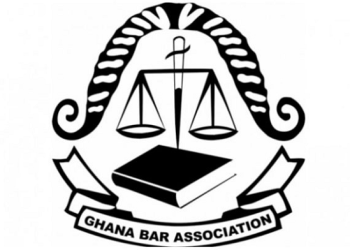The Ghana Bar Association (GBA) has issued a firm resolution condemning public statements perceived as prejudicial to Article 146 of Ghana’s 1992 Constitution, which outlines procedures for removing judges and other constitutional officeholders.
The decision, ratified by a majority vote of 43 members during the association’s mid-year conference in Accra on April 26, 2025, underscores the GBA’s commitment to safeguarding judicial independence and maintaining public trust in legal institutions.
Article 146 mandates strict protocols for investigating and removing justices and high-ranking officials, emphasizing due process and transparency to protect the integrity of the judiciary. The GBA’s resolution warns that speculative or inflammatory commentary on such matters risks eroding confidence in constitutional governance. During the conference, members emphasized the need to shield judicial proceedings from external influence, particularly amid heightened political tensions surrounding recent high-profile cases.
GBA President Efua Ghartey stressed the collective responsibility of legal professionals and the public to avoid remarks that could “pollute the atmosphere of fairness” required for judicial accountability. “The rule of law thrives when citizens and practitioners respect the mechanisms designed to uphold it,” she stated. The resolution also serves as a broader appeal for restraint in public discourse, urging stakeholders to trust established constitutional processes.
The move follows recent debates over the suspension of Chief Justice Gertrude Torkornoo, a case that reignited discussions about executive-judicial boundaries. While the GBA did not reference specific incidents, its stance reflects ongoing concerns over politically charged rhetoric complicating judicial oversight. Legal analysts note that Article 146, rarely invoked historically, has gained prominence amid Ghana’s evolving governance challenges, necessitating clearer public understanding of its safeguards.
Ghana’s judiciary has long been a cornerstone of its democratic framework, with its independence pivotal to resolving electoral disputes and upholding civil liberties. The GBA’s intervention highlights the delicate balance between free speech and the need to insulate legal processes from partisan agendas. As the nation approaches the 2028 elections, the association’s call for measured dialogue seeks to fortify institutional resilience against polarization.
This resolution aligns with the GBA’s broader advocacy for legal professionalism and constitutional fidelity, reinforcing its role as a guardian of judicial norms. By addressing gaps in public awareness, the body aims to foster a culture of respect for due process a critical step in preserving Ghana’s reputation as a beacon of democracy in West Africa.
Send your news stories to newsghana101@gmail.com
Follow News Ghana on Google News











